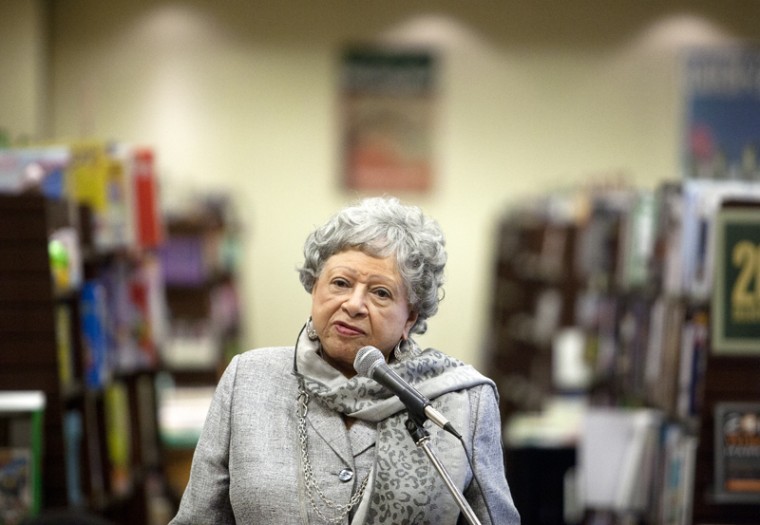First African American Kentucky state senator speaks at WKU-sponsored event
February 10, 2012
In April 1968, Georgia Davis Powers was in a Memphis motel room when she heard a strange noise outside. After hearing a scream, Powers went outside to discover the noise was a gunshot. Martin Luther King Jr., had been assassinated.
This was one of the stories recounted by Powers, the first African American and first woman elected to the Kentucky state Senate — who had a close relationship with King — at a WKU Libraries Live event in recognition of Black History Month at Barnes & Noble on Feb. 9.
The event centered on Anne Onyekwuluje, an associate professor of sociology and her new biography about Powers.
Onyekwuluje said Powers should be recognized as a significant leader in the civil rights movement.
“Georgia (and her election) represented a pivotal turning point for Kentucky,” Onyekwuluje said.
Powers jumped into the race after her representative moved to a different district. She had little money and no recognition. However, she said she didn’t just want to march for equality — she wanted to make it law.
“I didn’t have money and no one knew me, but I had nerve,” Powers said.
She went on to win the primary and the general election for the Kentucky Senate in 1967.
Although Powers said she wasn’t particularly interested in politics, she wanted to vote on laws that affected her and those “who do not have a voice.”
The Kentucky Senate quickly took notice of Powers, who aggressively pushed various pieces of civil rights legislation. One of Powers’ legacies is Kentucky’s open housing law, which prevents discrimination in renting or selling property.
Powers had her own experience with this kind of discrimination. When attempting to stay at hotels in Kentucky, Powers was often denied a room because of her race.
“When you get humiliated like that, that stays with you,” she said.
The open housing law passed the Senate, 27 to 3, and became law. It was the first open housing law of its kind in the South.
Powers, 88, said she continues to “put one foot in front of the other” and advocate for causes she finds meaningful. She most recently fought against a proposed law that would redirect money from public schools to charter schools in Kentucky.
Onyekwuluje said the issue of education was a great concern for Powers during her career.
“Powers didn’t think a welfare state was the answer,” Onyekwuluje said. “She thought schools were (the way out of poverty).”
Powers said it’s important for young people to know that a child’s success does not have to be determined by their upbringing or their parents.
“It’s all within you,” she said.
Onyekwuluje’s book, “Historical Influence: Reading Georgia Powers as a Grassroots Civil Rights Leader in the Rough Business of Kentucky Politics,” is available now for purchase.
Powers is also in the process of writing a new book detailing the final five hours of conversations she had while at the hotel in Memphis, prior to King’s death.
WKU will continue to celebrate Black History Month on Feb. 21, with a “Keynote Address” in DUC 224 at 7 p.m.




















![Students cheer for Senator at Large Jaden Marshall after being announced as the Intercultural Student Engagement Center Senator for the 24th Senate on Wednesday, April 17 in the Senate Chamber in DSU. Ive done everything in my power, Ive said it 100 times, to be for the students, Marshall said. So, not only to win, but to hear that reaction for me by the other students is just something that shows people actually care about me [and] really support me.](https://wkuherald.com/wp-content/uploads/2024/04/jadenmarshall-600x422.jpg)



